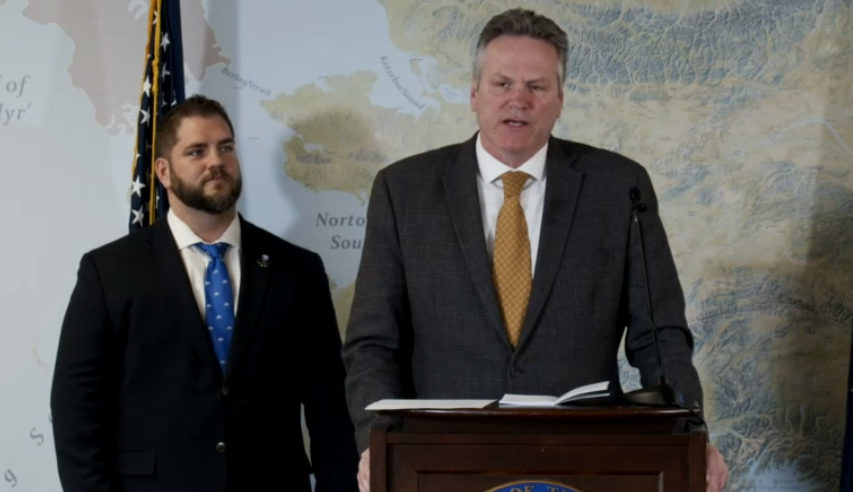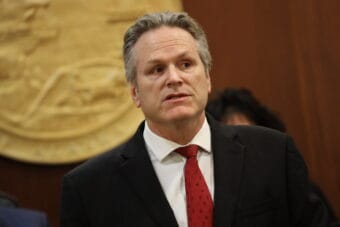
The Alaska Department of Health and Social Services will be split into two separate departments in July. Gov. Mike Dunleavy proposed a similar change last year that he withdrew after nonprofit and tribal leaders, as well as legislators, raised concerns.
Under the change, there will be a Department of Health that would continue to do most of the work of the current Department of Health and Social Services, like overseeing the Medicaid program. Medicaid is one of the largest pieces of the state budget.
The other new department will be the Department of Family and Community Services. It will oversee foster care, juvenile justice, Alaska Pioneer Homes and the Alaska Psychiatric Institute.
Adam Crum, the commissioner of the currently combined department, said the administration reached out to nonprofit and tribal organizations earlier in the process this year than last.
“Over the last year, we have worked extensively with our stakeholder groups multiple times each week to make sure they understood what was going on,” he said at a news conference on Monday.
Crum said the large number of services he oversees has meant that he and his staff have moved from one crisis to another. And having two, more focused, departments will make that less likely.
Senate President Peter Micciche, R-Soldotna, said the process went more smoothly this year.
“The biggest difference this year was, we worked together and we worked together with stakeholder groups, front-line workers, division leaders, and the administration, as opposed to it sort of plunking down on the desk,” he said. “We knew it needed to happen, but I think folks needed to warm up to the idea.”
But the process wasn’t entirely smooth. A lawyer for the Legislature raised potential legal issues with the plan. And the House Health and Social Services Committee supported blocking Dunleavy’s plan.
Anchorage Democratic Rep. Ivy Spohnholz, a member of the committee, said she would have liked to have seen the administration incorporate more public input into the plan than it did.
“We’ve heard that very successful reorganizations in other states have taken years to plan before going live,” she said.
Last year, the governor withdrew his proposal after the House committee proposed rejecting it. This year, he didn’t, and Micciche says most senators supported the plan.
Spohnholz noted that under state law, the commissioner sits on several state boards and commissions. And while the administration has divided up which commissioner would sit on which board, she said those changes can’t happen without the Legislature passing them.


